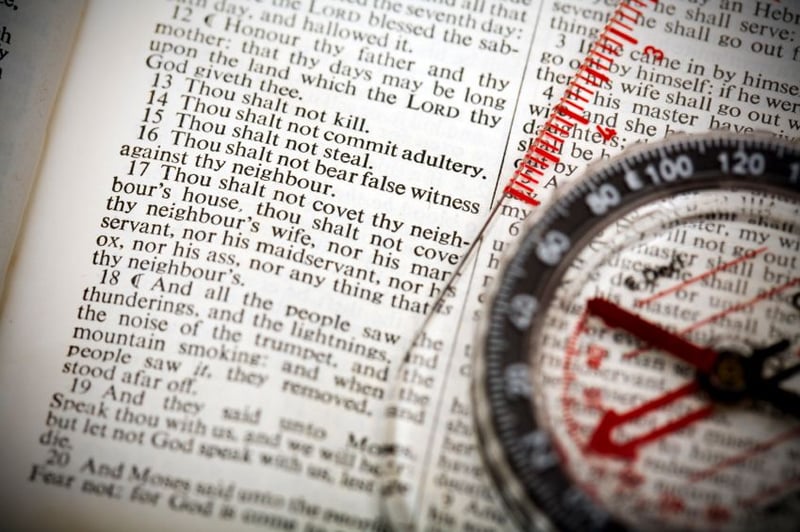When Is the Sabbath Day?
In the Bible, God commands that His people rest on the Sabbath day. The Jews worship between Friday sunset and Saturday sunset, but when is the Sabbath day for Christians?

Throughout the Bible, God specifically commands His people to remember the day He set aside for them to worship Him each week. This day is the Sabbath, a day of rest and worship for those who follow God.
If God still expects His people to worship Him on the Sabbath, a logical question remains: When is the Sabbath?
The modern religious world has differing opinions on when God’s people should worship, with most Jews worshipping on Friday night or Saturday and most of the Christian world worshipping on Sunday. However, if we want to properly observe the Sabbath, we should focus on which day the Bible says we are to worship on.
When is the Sabbath day according to the Bible?
What day of the week is the Sabbath in the Bible?
God made the timing of the Sabbath commandment crystal clear so that His people would observe it properly each week. He specifically commanded that the Sabbath be kept on the seventh day of the week.
God’s intentions for the seventh day were clear from the very beginning. Genesis 2:1-3 details the first Sabbath, on the seventh day of creation, when God rested from His work.
Though already in effect, the Sabbath command was finally codified after Israel’s exodus from Egypt. As a part of the Fourth Commandment (Exodus 20:8-11), God instructed His people to rest on the seventh day, just as He had done at creation.
Shortly thereafter, God included the Sabbath in His list of holy days (Leviticus 23:3), where He again made it clear that the weekly Sabbath is the seventh day.
God reiterated His 10 Commandments to Israel once more before they entered the Promised Land. In Deuteronomy 5:12-15, He again affirmed that the seventh day is the Sabbath, leaving no doubt about when the holy day falls each week.
Though already in effect, the Sabbath command was finally codified in the 10 Commandments after Israel’s exodus from Egypt.
(To learn more about the correct day of weekly worship, read “Which Day Is the Seventh Day?”)
Nevertheless, most Christians today worship on Sunday, the first day of the week, rather than Saturday. Did the Sabbath commandment change after the Old Testament? Did Jesus change the day of worship when He was on earth?
No. There’s not a single verse in the New Testament that explicitly changes the Sabbath from Saturday to Sunday. In fact, the New Testament includes several instances where the Sabbath is still referred to as being on the seventh day of the week, not the first.
Both Matthew 28:1 and Hebrews 4:4 refer to the Sabbath as being on the seventh day of the week. Both of these verses were written after the death of Jesus Christ, which some mistakenly claim to be when the Sabbath law was changed or abolished. Yet Christ’s followers were still keeping the seventh-day Sabbath.
The Sabbath command is consistent throughout the Bible, from the Old Testament to the New. There is no part of God’s Word that describes the Sabbath as being on any other day than the seventh day of the week.
While some denominations will try to rationalize Sunday worship, their arguments directly contradict Scripture. From the very beginning of time, the Sabbath was to be kept on the seventh day.
To learn more about the common arguments for Sunday observance—and why they don’t hold up when carefully examined—read “Was the Sabbath Changed to Sunday?”
When does the Sabbath start and end?
While the Sabbath clearly falls on the seventh day of the week, when does the day actually start and end, according to the Bible?
Modern society marks the beginning of a new day at midnight. But this is not how people in ancient times measured days. The movement of the sun was a more visible marker of time in an age before the invention of clocks. At sunset, one day would come to an end and the next day would begin.
The Sabbath begins at sunset on Friday evening and ends at sunset on Saturday evening.
While this verse discusses an annual holy day, not the weekly Sabbath, the principle is the same. God expects His holy days to be observed from sunset to sunset, as Jews and some modern Christians still practice today.
Throughout the creation week of Genesis 1, God declares each day as beginning in “the evening” (Genesis 1:5, 8, 13, 19, 23, 31).
As soon as Christ was dead, the Jews campaigned to have His body removed from the cross before the sun went down, which they correctly understood to be the beginning of the annual Sabbath (John 19:31, 42).
Applying biblical principles to our modern calendar, it becomes clear that the Sabbath begins at sunset on Friday evening and ends at sunset on Saturday evening. This marks a 24-hour period of holy time designed for rest and worship.
When did the Christian Church keep the Sabbath?
Today, the seventh-day Sabbath is usually labeled as strictly a Jewish day of observance. However, the example of the first-century Christian Church, led by Christ’s faithful apostles, proves otherwise.
The Christians of the early Church all observed the Sabbath on the seventh day (Saturday), not the first (Sunday).
Some argue that the apostles preached in the synagogues on Saturday only because it guaranteed an audience from which some Jews might be converted. However, this does not explain the apostles’ continued Sabbath observance.
In fact, Acts 18:4 confirms that Paul was present in the synagogue every Sabbath, reasoning with both Jews and Greeks. It was his consistent personal practice, not merely a marketing tactic.
In Acts 13:42, Paul and Barnabas were invited by their audience to return and preach again on the following Sabbath. Had they believed the Sabbath was changed to Sunday, they could have told the audience to reassemble the next day, on Sunday. But they didn’t. Instead, they dutifully returned the following Sabbath (verse 44).
Modern Christianity has no biblical proof to back up Sunday worship. In fact, it is a well-documented historical fact that the Roman Emperor Constantine, a sun worshipper, was instrumental in changing the Christian day of worship to Sunday in the fourth century.
If you’re interested in learning more about the history of this change, read “Who Changed the Day of Worship From Saturday to Sunday? Why?”
When will you keep the Sabbath?
Despite numerous endorsements and commands throughout the Bible, most of modern Christianity refuses to observe the Sabbath on the seventh day.
Readers, you must choose when and if you will keep the Sabbath. Will you believe the written Word of God, which cannot and will not be changed (Matthew 5:18; Malachi 3:6; James 1:17)? Or will you believe a man-made doctrine, invented by a fickle and ever-changing humanity?
The choice is yours.
To learn more about how to observe God’s seventh-day Sabbath, read our article “How to Keep the Sabbath Holy.”
Date Posted: September 11, 2023



